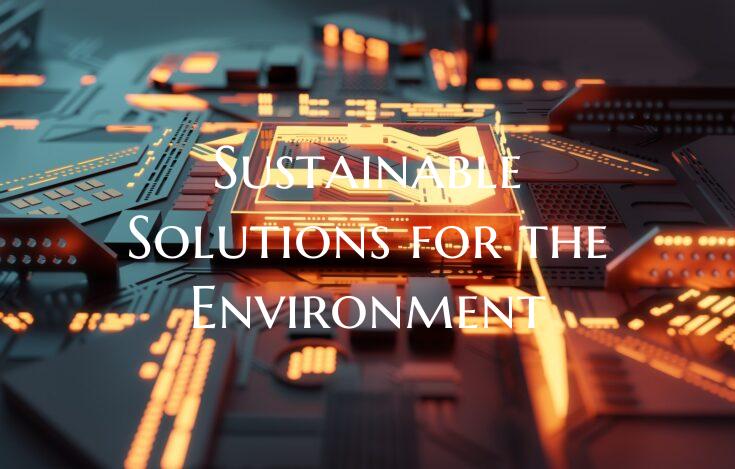Sustainable Solutions for the Environment
In today’s world, the need to address environmental challenges has never been more critical. As we strive to create a more sustainable future, it is essential to explore innovative solutions that can help protect our environment for future generations. Sustainable solutions for the environment encompass a wide range of practices and technologies aimed at reducing our ecological footprint and preserving natural resources.
One key aspect of sustainable solutions is the promotion of renewable energy sources. Transitioning from fossil fuels to renewable energy sources such as solar, wind, and hydropower can significantly reduce greenhouse gas emissions and combat climate change. Embracing clean energy technologies not only helps in reducing air pollution but also decreases our reliance on finite resources.
Another important sustainable solution is the promotion of circular economy principles. Instead of the traditional linear model of production and consumption, where resources are extracted, used, and disposed of, a circular economy aims to minimize waste and maximize resource efficiency. This can be achieved through practices like recycling, reusing, and reducing waste generation, ultimately contributing to a more sustainable and resource-efficient economy.
Furthermore, sustainable solutions for the environment also involve promoting sustainable agriculture practices. Implementing agroecological approaches, such as organic farming and regenerative agriculture, can help improve soil health, biodiversity, and water conservation while reducing the use of synthetic chemicals and pesticides. By supporting sustainable agriculture, we can ensure food security for future generations without compromising the health of our planet.
In addition, sustainable urban planning and design play a crucial role in creating environmentally friendly cities and communities. By incorporating green spaces, efficient public transportation systems, and energy-efficient buildings, cities can reduce carbon emissions, improve air quality, and enhance the quality of life for residents. Smart urban planning can help in mitigating the impact of urbanization on the environment and promote sustainable living practices.
In conclusion, sustainable solutions for the environment are essential for building a more resilient and healthy planet. By embracing renewable energy, circular economy principles, sustainable agriculture, and urban planning, we can work towards mitigating climate change, conserving natural resources, and fostering a more sustainable future for all. It is imperative that individuals, businesses, and governments collaborate to implement these solutions and make sustainable practices a cornerstone of our societies. Together, we can create a greener, cleaner, and more sustainable world for generations to come.

